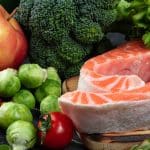In the bustling metropolis, amidst the towering skyscrapers and the hum of city life, a quiet revolution is taking place. Sleek warehouses, once left abandoned, buzz with activity, but this business isn’t the usual kind. Inside, the commodities being produced aren’t devices or apparel, but something far more fundamental: fresh food. Welcome to the world of urban farming, a practice that is transforming the way we think about agriculture.
However, this is not your grandfather’s farming. This is a high-tech operation that harnesses the power of technology to produce food in ways that are more sustainable, efficient, and cater to the demands of an urban population. A pivotal piece of this technology puzzle is Artificial Intelligence (AI). How can AI help in enhancing the efficiency of urban farming techniques? Let’s delve into this fascinating world to find out.
Dans le meme genre : What Innovations Are Propelling the Adoption of Electric Planes?
Precision Farming and Data Management
Advancements in technology have amplified the concept of precision farming. Here, AI plays a key role in collecting and managing data about crops in real-time. Farms are now equipped with sensors that monitor various parameters like soil moisture, temperature, and light intensity.
AI algorithms process this data to provide actionable insights to farmers. For instance, sensors can detect when the soil gets too dry and trigger an automatic watering system, thereby ensuring the crops receive water precisely when they need it, reducing wastage and enhancing productivity. Similarly, data on sunlight exposure can help optimize the positioning of plants for maximum yield.
Avez-vous vu cela : Discover the best mystery boxes: our ultimate selection
Moreover, AI can also predict future conditions and suggest preemptive measures. By analyzing historical and real-time data, AI can forecast weather changes or potential pest infestations, allowing farmers to act in time and prevent crop loss.
Efficient Use of Resources with AI
Urban farming faces unique challenges in terms of resource availability. Due to space constraints, urban farms need to maximize yield while minimizing the use of resources like water and soil. AI can contribute significantly towards achieving this balance.
Hydroponic systems, which allow plants to grow in nutrient-rich water rather than soil, are common in urban farming. AI can be used to monitor these systems, adjusting the nutrient mix and water levels based on the needs of the crops. The result is healthier crops grown using fewer resources.
AI can also help with water management. By analyzing data on factors like rainfall, evaporation rates, and plant water usage, AI can help manage irrigation, reducing water waste, and ensuring that crops get the right amount of water.
The Role of Machine Learning in Crop Selection and Rotation
The choice of crops to grow is a critical decision for every farmer. In urban farming, this decision is even more important given the space limitations. This is where machine learning, a subset of AI, comes into play.
Machine learning algorithms can analyze past data on crop yields, growth rates, and market demand to suggest the most profitable crops to grow at any given time. These systems can also factor in environmental conditions and the farm’s capacity, ensuring that the suggested crops are viable.
Besides crop selection, AI can also assist with crop rotation. By tracking the growth and harvest cycles of different crops, AI can recommend when and where to plant the next crop, ensuring the sustainability of the soil and maximizing yields.
AI for Post-Harvest Management
The work of farming doesn’t stop once the crops are harvested. Post-harvest management is a crucial aspect and AI can provide substantial assistance in this area too.
AI can help with sorting and grading the produce. By using image recognition technology, AI can identify any defects or diseases in the produce, ensuring only the highest quality food reaches the consumers. This not only enhances efficiency but also saves time for the farmers.
Moreover, AI can help manage inventory and distribution. By analyzing data on market demand, AI can predict the best time to sell the produce, helping farmers to get the best price for their crops.
The Future of Urban Farming: AI-driven Sustainable Practices
As cities grapple with the challenge of feeding their growing populations, urban farming emerges as a promising solution. However, for urban farming to truly deliver on its potential, it needs to leverage technology, specifically AI.
AI can help make urban farming more sustainable by reducing waste, optimizing resource use, and boosting crop yields. Beyond sustainability, AI can also contribute to the economic viability of urban farming by assisting with crop selection, rotation, and post-harvest management.
The future of urban farming is not just about growing food within city limits. It’s about employing advanced technologies to make agriculture more efficient, sustainable, and resilient, and AI is at the forefront of this revolution. While we’re only scratching the surface of what AI can do, it’s clear that AI has the potential to fundamentally transform urban farming practices for the better. As we continue to innovate, the sky is the limit for what urban farming can achieve.
Vertical Farming: A New Dimension of Agriculture Powered by AI
In densely populated urban settings, traditional farming is nearly impossible due to space constraints. This is where vertical farming, another innovative facet of urban farming, comes into play. This technique involves growing crops in vertically stacked layers, often in controlled environments like buildings or skyscrapers. Essentially, it takes farming not just into the city, but upwards as well.
The real potential of vertical farming is realized when integrated with artificial intelligence. AI can monitor the complex variables in a vertical farm, such as light intensity at different levels, humidity, temperature, and nutrient levels, providing a comprehensive, real-time data set for informed decision making.
For instance, an AI system can regulate the indoor environment to create the optimal conditions for each crop to thrive, therefore increasing crop yields. It can adjust the lighting intensity and period to simulate the perfect day length, thereby tricking the plants into growing faster.
AI can also detect any unusual changes in the plants by monitoring their health and growth patterns. If a disease or pest outbreak were to occur, AI can help farmers take immediate action, preserving the health of the entire vertical farm.
Through the power of predictive analytics, AI can even forecast the yield of each layer of the vertical farm. This data-driven approach improves efficiency, allowing for better planning and less waste. Indeed, vertical farming supported by AI is a promising solution to the increasing food production demands in cities.
Climate Change: AI’s Role in Building Resilient Urban Farming Practices
As the world continues to grapple with climate change, the need for resilient and sustainable agriculture has never been more crucial. In these challenging times, AI can serve as a critical ally for urban farming.
Through precision agriculture, AI can help urban farms become more resilient to changes in weather patterns. By analyzing historical climate data and real-time weather conditions, AI can predict short-term and long-term changes in weather. This information can be used to make informed decisions about planting and harvesting schedules, irrigation needs, and other farming practices.
Further, AI can assist in making urban farms more adaptable to climate change. For instance, machine learning algorithms can identify which crops are more resistant to certain weather conditions or diseases, helping farmers diversify their crops and maintain yield levels during adverse conditions.
AI can also contribute to the mitigation of climate change by promoting sustainable agriculture. It can guide farmers towards methods that minimize water and energy usage, reduce greenhouse gas emissions, and promote soil health.
Through these applications, AI not only enhances the efficiency of urban farming but also contributes to a more sustainable and climate-resilient food system.
Conclusion: Embracing AI in Urban Farming for a Sustainable Future
The challenge of feeding an ever-growing urban population in the face of space constraints and climate change is daunting. However, with the advent of AI, urban farming techniques have become more efficient, sustainable, and resilient than ever before.
Through precision farming, AI has dramatically improved the decision-making process in agriculture. It has enabled real-time monitoring of crop health and environmental conditions, predictive analytics for yield optimization, and efficient resource management. These advancements have not just improved crop yields, they have also reduced waste and promoted sustainable farming practices.
The application of AI in vertical farming has revolutionized food production in urban spaces, overcoming space constraints and enhancing productivity. Furthermore, AI’s role in building climate-resilient farming practices is key to securing our food systems against the unpredictable impacts of climate change.
As we tap further into the potential of AI in urban farming, this technology will continue to drive innovations and shape the future of food production in cities. The integration of AI with urban farming represents a significant leap towards a sustainable and food-secure future. It’s a fantastic example of how technology can help us adapt and thrive in a rapidly changing world.










